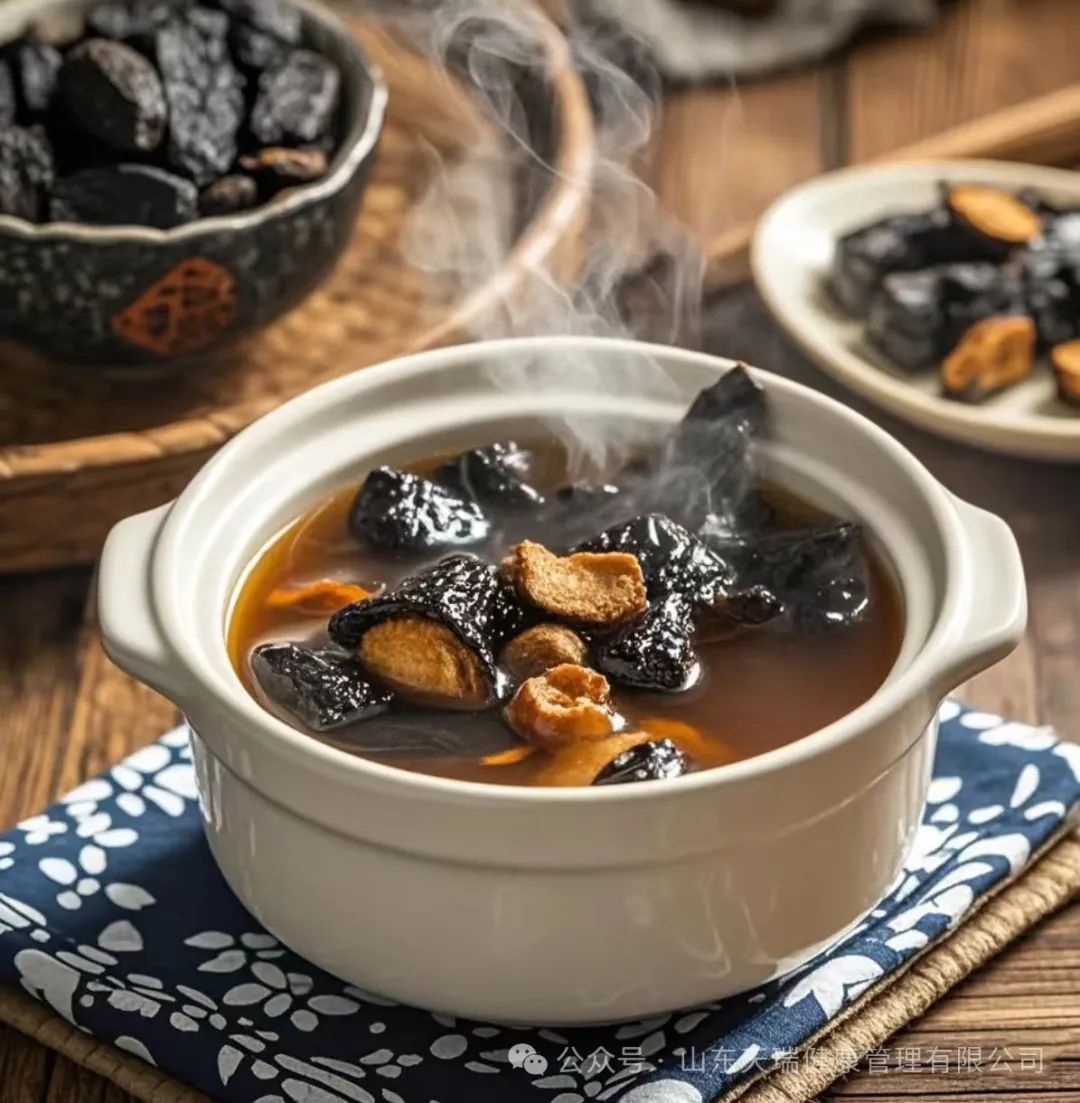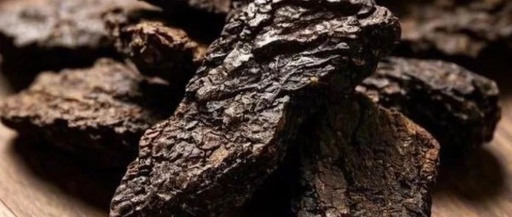
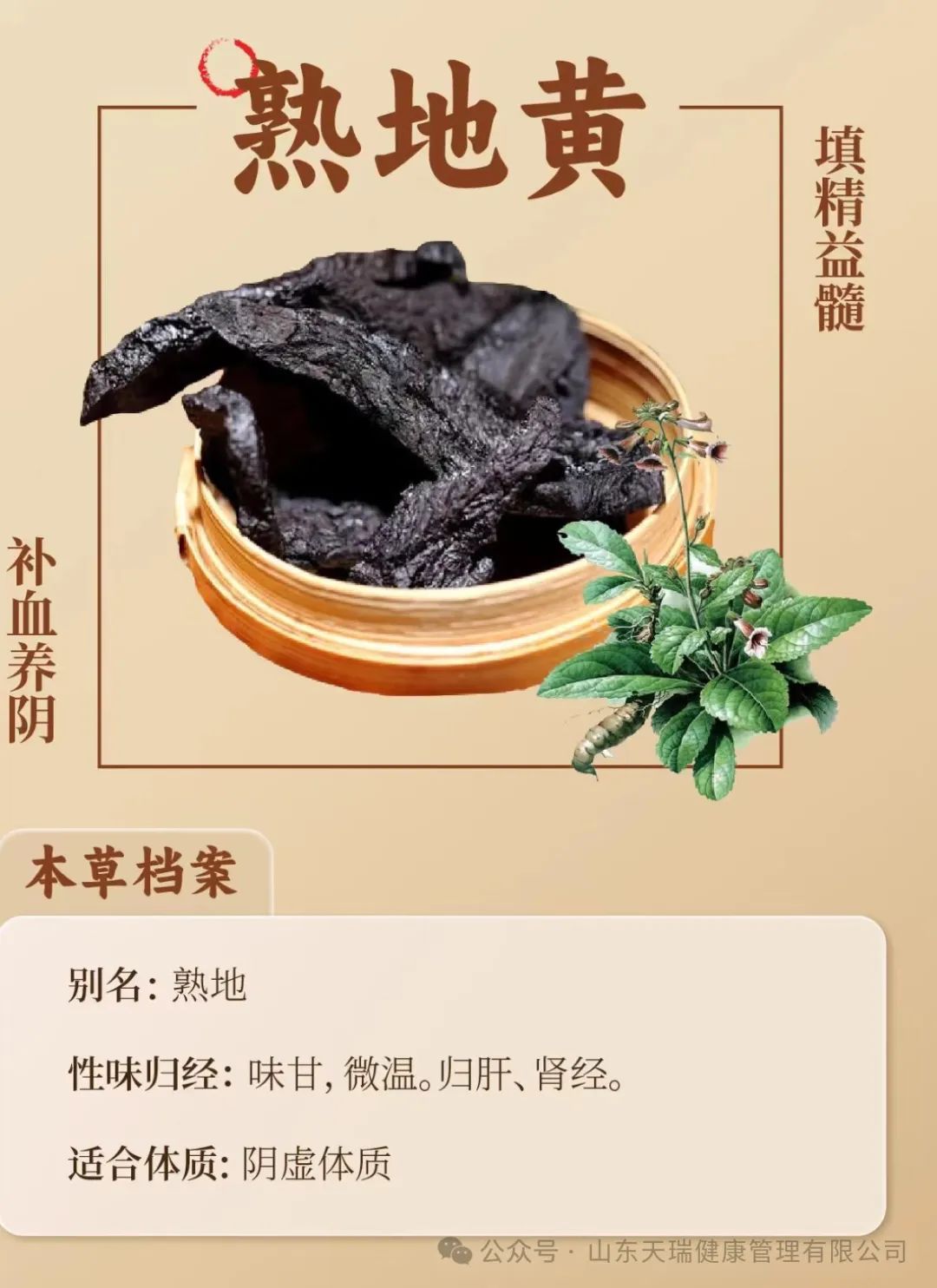
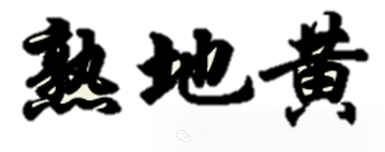
Shu Di Huang (熟地黄) is prepared from the tuber of Rehmannia glutinosa, belonging to the family Scrophulariaceae. It is categorized into three types: fresh Di Huang (鲜地黄), raw Di Huang (生地黄), and Shu Di Huang (熟地黄), each differing in efficacy and application.
Preparation Method
Typically, dried Di Huang is mixed with yellow wine and steamed until the wine is fully absorbed, resulting in a dark black luster and a sweet taste. It is then removed, dried until the outer skin is slightly sticky, and cut into thick slices or blocks for further drying, which yields Shu Di Huang. There is also a method using direct steaming, where raw Di Huang is steamed until it becomes black and moist.
Efficacy and Indications
Blood Nourishing and Yin Tonifying: Commonly used to treat blood deficiency syndromes, such as pale complexion, dizziness, palpitations, insomnia, irregular menstruation, and excessive uterine bleeding. It is also applicable for kidney yin deficiency syndromes, presenting with symptoms like lower back and knee soreness, dizziness, tinnitus, night sweats, and nocturnal emissions.
Essence Nourishing and Marrow Filling: It has a regulating effect on early aging, premature graying of hair, and infertility caused by liver and kidney yin deficiency. It can also be used to treat muscle weakness and developmental issues in children due to essence and blood deficiency.
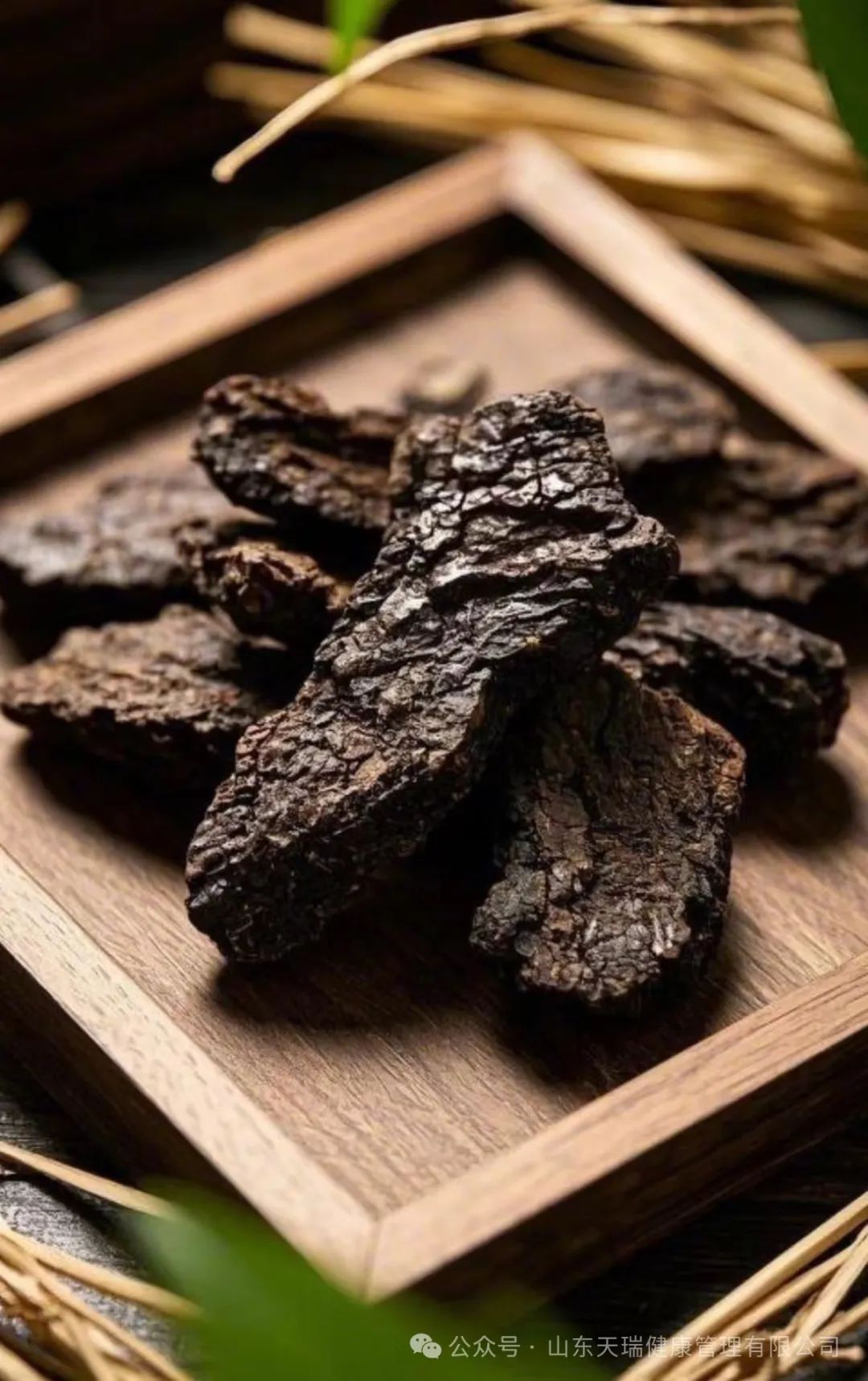
Modern Research
Modern pharmacological studies indicate that Shu Di Huang possesses various pharmacological activities. It can promote hematopoietic function, enhance immune response, and has certain effects in lowering blood sugar, reducing blood pressure, and exhibiting antioxidant properties. Additionally, Shu Di Huang has beneficial effects on cardiovascular function and liver protection.
Dosage and Administration
For internal use: Typically decocted, with a common dosage of 10-30 grams; it can also be used in pills, powders, or ointments.
For external use: It can be crushed and applied topically or its juice can be used for application.
Precautions
Shu Di Huang has a sticky nature that may hinder digestion; it is contraindicated for individuals with spleen and stomach deficiency, qi stagnation with phlegm, abdominal distension, or diarrhea.
